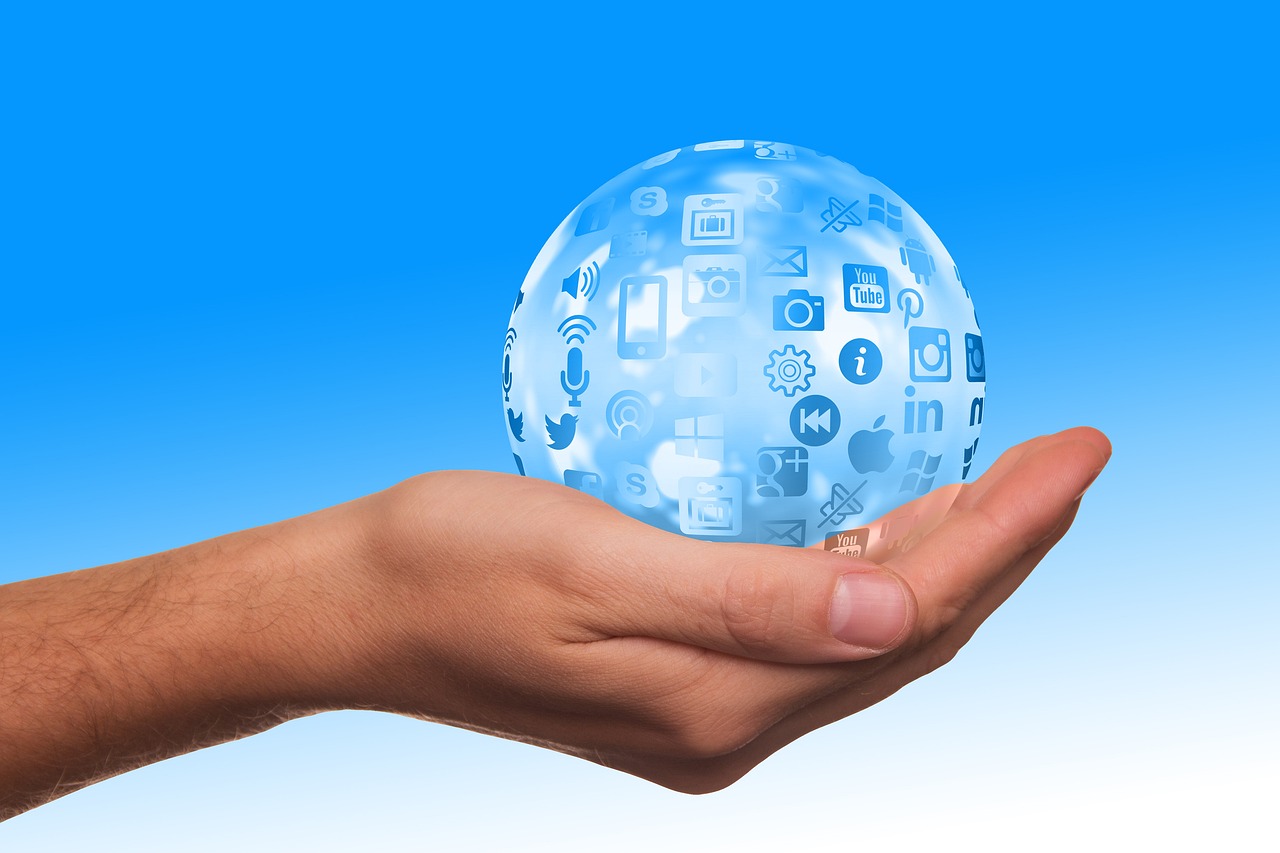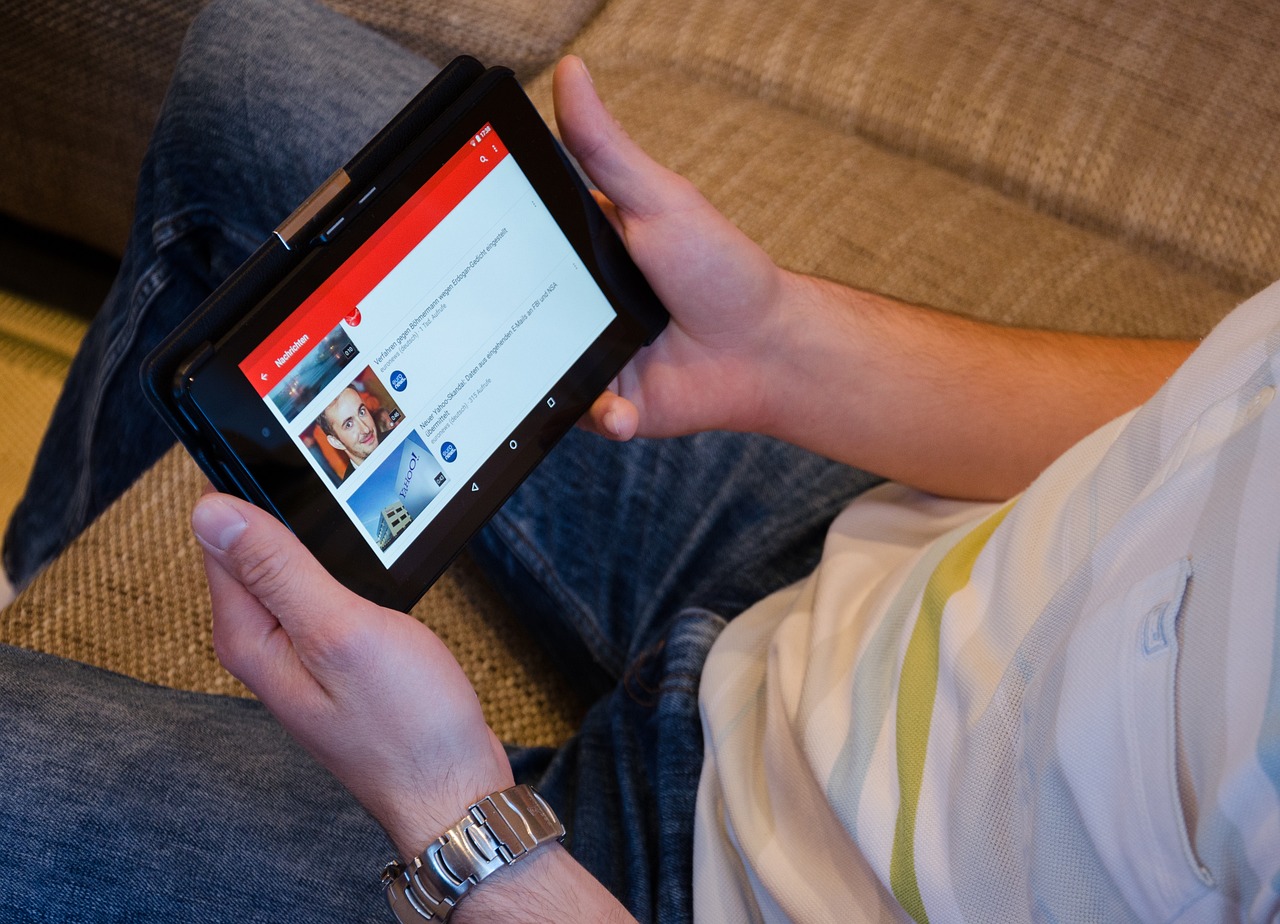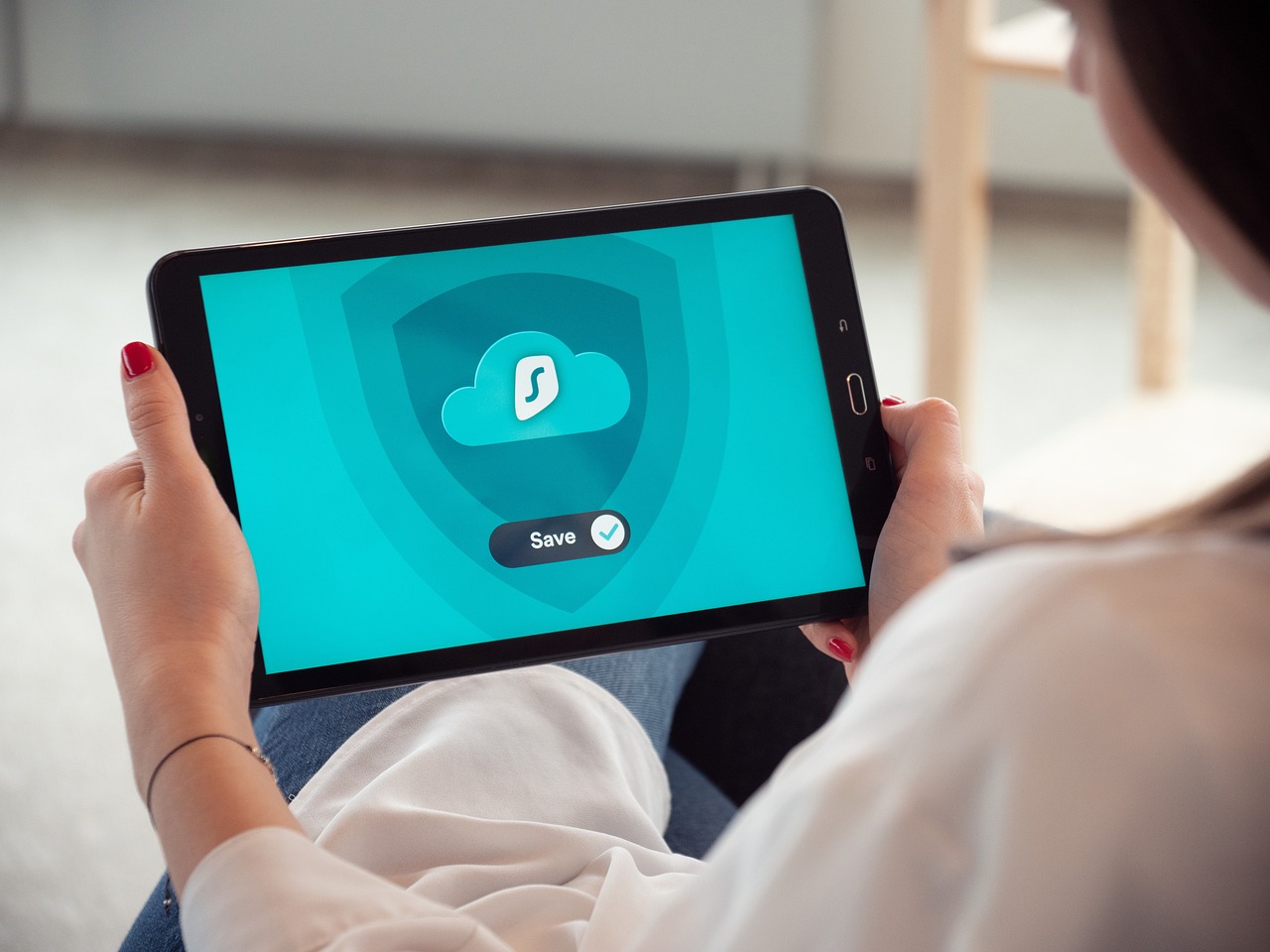Are Online Relationships Safe?
In today's digital age, the question of whether online relationships are safe is more relevant than ever. With the rise of social media, dating apps, and online communities, many people find themselves forming connections with others they may never meet face-to-face. But while these relationships can be exciting and fulfilling, they also come with their own set of challenges and risks. So, how do we navigate this complex landscape? Let's dive into the world of online relationships, exploring both the potential dangers and the benefits that can come from connecting with others online.
Online relationships can encompass a wide range of interactions, from casual friendships formed in gaming communities to serious romantic partnerships developed through dating apps. Understanding the nuances of these connections is crucial for assessing their safety and impact on our emotional well-being. It's essential to recognize that while the internet offers incredible opportunities for connection, it also requires a level of caution and awareness.
One of the most significant concerns surrounding online relationships is the risk of catfishing, where someone assumes a false identity to deceive others. This can lead to emotional distress and a sense of betrayal when the truth is revealed. Additionally, emotional manipulation can occur, where one person exploits the feelings of another for personal gain. Recognizing these behaviors is vital for maintaining healthy interactions and protecting oneself from harm.
On the flip side, online relationships also offer unique advantages. They allow individuals to connect with others who share similar interests, no matter where they are in the world. This can foster a sense of community and belonging that might be hard to find locally. Moreover, during challenging times, online relationships can provide essential support networks where individuals can share experiences and seek advice from those who understand their situation.
Ultimately, the safety of online relationships depends on the choices we make and the precautions we take. By being aware of the potential risks and benefits, we can navigate the digital landscape with confidence and create meaningful connections that enrich our lives.
- What are the signs of a catfish? Look for inconsistencies in their stories, reluctance to share personal information, and overly polished photos that seem too good to be true.
- How can I protect my personal information online? Avoid sharing sensitive details like your address or financial information until you fully trust the person.
- Are online relationships just as meaningful as in-person ones? Yes, they can be just as meaningful, but they require effort to build trust and connection.
- What should I do if I feel uncomfortable in an online relationship? Trust your instincts; if something feels off, it’s okay to distance yourself or cut off communication entirely.

Understanding Online Relationships
Online relationships can vary greatly, ranging from casual friendships formed in a chat room to serious romantic connections that blossom through social media. In this digital age, the way we connect has transformed dramatically, and understanding these dynamics is crucial for assessing both safety and emotional well-being. Have you ever thought about how your online interactions compare to those in the real world? Just like face-to-face relationships, online connections can bring joy, companionship, and even a sense of belonging. However, they also come with their own set of challenges and risks that we must navigate carefully.
One of the most fascinating aspects of online relationships is the sheer diversity of people you can meet. Imagine having the ability to connect with someone from halfway around the world who shares your passion for hiking, painting, or even obscure 80s movies! These platforms allow us to form connections based on shared interests rather than geographical limitations. However, this very freedom can also lead to misunderstandings, as the absence of non-verbal cues can make it difficult to gauge someone's true intentions.
Moreover, online relationships often lack the depth that in-person interactions can provide. Without the ability to see body language or hear tone of voice, it’s easy to misinterpret messages. This is where effective communication becomes vital. It’s essential to be clear and open about your feelings and intentions. Just think of your favorite book or movie—how often do characters miscommunicate and end up in hilarious or dramatic situations? The same can happen in our online lives if we’re not careful!
Additionally, the anonymity that the internet provides can be both a blessing and a curse. On one hand, it allows individuals to express themselves freely without fear of judgment. On the other hand, it can also encourage deceitful behavior. As we delve deeper into the world of online relationships, we must remain vigilant and aware of the potential for misrepresentation and emotional manipulation. In this context, it’s crucial to establish trust and set boundaries that protect your emotional well-being.
In summary, understanding online relationships means recognizing their complexity. They can be a source of joy and support, but they also require a level of caution and awareness. By fostering open communication and being mindful of the potential risks, we can enjoy the benefits of connecting with others in this vast digital landscape. So, as you continue to explore online relationships, ask yourself: How can I ensure that my connections are both fulfilling and safe?

Potential Risks of Online Relationships
Engaging in online relationships can feel like a thrilling adventure, but it’s important to remember that, like any journey, there are potential risks lurking around every corner. While the internet offers a platform for connection, it also opens the door to various dangers that can impact your emotional and personal safety. Understanding these risks is crucial for anyone navigating the digital dating landscape or forming friendships online.
One of the most significant risks associated with online relationships is catfishing. This term refers to the act of creating a false identity, often with the intention to deceive someone into a romantic relationship. Imagine falling for someone who isn’t real—it's like building a sandcastle only for the tide to wash it away. Recognizing the signs of catfishing is essential. If someone is overly secretive about their personal life, avoids video calls, or has inconsistent stories, these may be red flags indicating that you are not interacting with the person you think you are.
To further illustrate the dangers of catfishing, consider the emotional toll it can take. Individuals who fall victim to catfishing often experience feelings of betrayal, confusion, and heartbreak. Protecting yourself from such deceit starts with being vigilant. Here are some red flags to watch out for:
- Reluctance to share personal information.
- Inconsistencies in their stories or background.
- Pressure to move the conversation off the platform quickly.
By being aware of these signs, you can safeguard your emotional well-being and avoid unnecessary distress.
Another critical aspect of online relationships is protecting your identity. In a world where information travels at lightning speed, safeguarding your personal details is paramount. Avoid sharing sensitive information—like your home address, financial details, or even your daily routine—until you have established a solid level of trust with the other person. Think of your personal information as a precious gem; you wouldn’t just leave it lying around for anyone to take, would you?
Emotional manipulation is another risk that often goes unnoticed in online relationships. This occurs when one party exploits the other’s feelings for personal gain, creating a toxic dynamic that can lead to significant emotional harm. It’s crucial to recognize the signs of manipulation, such as constant guilt-tripping, excessive jealousy, or demands for attention. If you feel like you’re walking on eggshells around someone, it might be time to reassess the relationship. Remember, a healthy connection should uplift you, not drain you.
In conclusion, while online relationships can be incredibly rewarding, they come with their own set of challenges. By being aware of the potential risks, such as catfishing and emotional manipulation, you can navigate these waters more safely. Always trust your instincts, and don’t hesitate to cut ties with anyone who makes you feel uncomfortable or unsafe.
1. What should I do if I suspect I’m being catfished?
If you suspect you’re being catfished, trust your instincts. Start by confronting the person about your concerns. If they continue to evade questions or provide inconsistent answers, it may be best to cease communication and block them.
2. How can I protect my personal information online?
To protect your personal information, avoid sharing sensitive details until you’ve built a strong level of trust. Use privacy settings on social media and be cautious about the information you share publicly.
3. What are the signs of emotional manipulation?
Signs of emotional manipulation include guilt-tripping, excessive demands for your time and attention, and creating a sense of obligation. If you feel drained or anxious after interactions, it may be a sign of manipulation.
4. Can online relationships be healthy?
Absolutely! Online relationships can be healthy if both parties communicate openly, respect each other’s boundaries, and build trust over time. Just like any relationship, it requires effort and understanding.

Catfishing and Deception
In the vast ocean of online interactions, catfishing is a dangerous and deceptive practice that can leave emotional scars. It involves someone creating a fake persona to lure others into a relationship, often with malicious intent. Imagine casting a fishing line into the water, only to reel in a baited hook instead of a fish; that’s what catfishing feels like for many unsuspecting victims. The emotional toll can be significant, as trust is built on a foundation of lies, leading to feelings of betrayal and confusion when the truth comes to light.
So, how can you protect yourself from falling prey to such deceit? First, it’s crucial to be aware of the common signs of catfishing. These can include:
- Unwillingness to share personal information: If someone is hesitant to provide basic details about themselves, it could be a red flag.
- Inconsistencies in their stories: If their narrative doesn’t add up or changes frequently, it’s worth questioning.
- Overly polished or professional photos: If their profile pictures look like they belong in a magazine, be cautious.
- Pressure to move the conversation off the platform: If they urge you to communicate through less secure channels, that’s a warning sign.
Recognizing these red flags early can be your first line of defense against emotional manipulation and heartbreak. It’s like having a radar system that alerts you to potential danger before you dive deeper into the relationship.
Another essential aspect of protecting yourself is safeguarding your personal information. Just as you wouldn’t hand your house keys to a stranger, you should avoid sharing sensitive details online until you’ve established a solid foundation of trust. This includes:
- Your full name
- Your home address
- Your phone number
- Financial information
By keeping this information private, you minimize the risk of having it used against you. Remember, in the digital world, it's easy for someone to manipulate facts and figures, so always err on the side of caution.
Ultimately, while online relationships can be rewarding, they come with their fair share of risks. By staying vigilant and informed about the potential for catfishing and deception, you can navigate these waters more safely. It’s always better to be safe than sorry, and knowing what to look out for can help you keep your heart and identity intact.
What is catfishing?
Catfishing is when someone creates a fake identity online to deceive others, often for emotional manipulation or financial gain.
How can I recognize if I'm being catfished?
Look for signs like reluctance to share personal details, inconsistencies in their stories, and pressure to move conversations off the platform.
What should I do if I suspect catfishing?
Trust your instincts. If something feels off, consider ending the communication and report the profile to the platform.
Is it safe to share personal information online?
It's best to keep sensitive information private until you have built a solid level of trust with the other person.

Identifying Red Flags
When diving into the world of online relationships, it's essential to keep your eyes peeled for red flags that could indicate something isn't quite right. Just like navigating through a dense forest, where hidden dangers lurk behind every tree, recognizing these warning signs can help you avoid emotional pitfalls. One significant red flag is a person's reluctance to share personal information. If your online connection seems evasive about their background or avoids answering direct questions, it might be time to take a step back and reassess the situation.
Another key indicator is inconsistencies in their stories. If you find that their narratives keep changing or don’t align with what they've previously shared, it can signal that they might not be who they claim to be. For instance, if they tell you they live in one city one day and then mention a different city the next, that's a cause for concern. It's like piecing together a puzzle; if the pieces don’t fit, something is amiss.
Moreover, if someone pressures you to move the conversation off the platform where you met, such as asking you to switch to a private messaging app or even a phone call too quickly, this can be a major red flag. It's as if they're trying to create a barrier between you and the safety of the public platform, where you might have more security and oversight.
Here are some additional red flags to watch for:
- Excessive flattery or love-bombing: If someone is showering you with compliments and affection too quickly, it might seem flattering at first, but it can be a tactic to manipulate your emotions.
- Unwillingness to meet in person: If the relationship progresses but they continuously make excuses to avoid meeting face-to-face, it could be a sign of deceit.
- Vague details about their life: If they often provide vague answers about their daily life or background, it may indicate they are hiding something.
Being vigilant about these signs can significantly reduce the risk of falling victim to deception in online relationships. Remember, trust is built over time, and if something feels off, it’s always better to err on the side of caution. Protecting your emotional well-being is paramount, and being aware of these red flags can help you navigate the complex landscape of online connections safely.
Q: What should I do if I suspect someone is catfishing me?
A: If you suspect catfishing, trust your instincts. Gather evidence, such as screenshots of conversations, and consider confronting the person about your concerns. If they continue to evade your questions, it might be best to cut off communication.
Q: How can I ensure my online relationship is safe?
A: Establish trust gradually, avoid sharing personal information too soon, and suggest meeting in a public place if the relationship progresses. Always prioritize your safety and well-being.
Q: Are online friendships as valuable as in-person ones?
A: Absolutely! Online friendships can provide unique perspectives and support, especially if you connect with like-minded individuals. They can be just as meaningful as in-person relationships, provided they are built on trust and respect.

Protecting Your Identity
In the vast and often unpredictable realm of online relationships, is not just a suggestion; it’s a necessity. The digital world can feel like a double-edged sword, offering opportunities to connect with fascinating individuals while simultaneously exposing you to potential risks. Imagine your personal information as a treasure chest; you wouldn’t leave it unlocked for anyone to rummage through, right? Similarly, safeguarding your personal details online is crucial.
One of the fundamental steps in protecting your identity is to be cautious about the information you share. It’s tempting to open up and share your life story with someone you feel a connection with, but it’s important to remember that not everyone has good intentions. Here are a few tips to keep in mind:
- Limit Personal Information: Avoid sharing sensitive details such as your home address, phone number, or financial information until you are absolutely sure about the person you are communicating with.
- Use Privacy Settings: Familiarize yourself with the privacy settings on the platforms you use. Adjust them to restrict who can see your profile and personal information.
- Verify Identity: Consider video calls or voice chats to verify the other person’s identity. This can help you ensure that the person you’re talking to is who they claim to be.
Another essential aspect of identity protection is being aware of the digital footprint you leave behind. Every post, comment, or interaction contributes to your online persona. It’s like leaving breadcrumbs that others can follow. To mitigate risks, it’s wise to regularly review your online presence and remove any information that could be misused.
Furthermore, consider using temporary or secondary accounts for online interactions, especially when you’re just getting to know someone. This allows you to maintain a degree of anonymity while still engaging in conversations. Think of it as wearing a mask at a masquerade ball; it adds an element of mystery while protecting your true identity.
Lastly, always trust your instincts. If something feels off or if you sense that the other person is pushing you to share more than you’re comfortable with, don’t hesitate to step back. Remember, it’s perfectly okay to take your time in building trust. After all, a solid foundation is key to any relationship, whether online or offline.
- What should I do if I suspect someone is catfishing me?
If you suspect catfishing, gather evidence of inconsistencies in their stories, and consider confronting them directly. If you're uncomfortable, it may be best to cease communication.
- How can I report suspicious behavior?
Most social platforms have mechanisms for reporting suspicious behavior. Use these tools to alert the platform and protect yourself and others.
- Is it safe to meet someone from an online relationship in person?
Meeting someone in person can be safe if you take precautions. Always meet in public places, inform a friend or family member of your plans, and trust your instincts.

Emotional Manipulation
Emotional manipulation in online relationships can be a subtle yet dangerous game. It often involves one person exploiting the vulnerabilities of another to gain control or achieve personal goals. Imagine being in a conversation where your partner seems to know just the right buttons to push, making you feel guilty or responsible for their feelings. This kind of behavior can lead to a toxic dynamic, where one person feels constantly on edge, trying to please the other while sacrificing their own well-being.
Recognizing emotional manipulation is crucial for maintaining healthy interactions. Manipulators might use tactics such as guilt-tripping, gaslighting, or playing the victim to gain sympathy and control. For instance, if your online partner frequently claims they are "just trying to help you" but ends up making you feel inadequate or insecure, it’s a significant red flag. Here are some common signs of emotional manipulation:
- Inconsistent Communication: If your partner's mood swings dramatically and unpredictably, it can leave you feeling confused and anxious.
- Excessive Flattery: While compliments are nice, when they seem over-the-top or insincere, they may be a way to lower your defenses.
- Isolation: A manipulative partner may subtly encourage you to distance yourself from friends and family, making you more reliant on them.
To protect yourself from emotional manipulation, it's essential to establish healthy boundaries. This means being clear about what you are comfortable with and what behaviors you will not tolerate. For example, if your partner frequently tries to guilt you into making decisions that benefit them, it's vital to assert your own needs and stand firm. Remember, a healthy relationship should empower you, not diminish your sense of self.
Additionally, seeking support from trusted friends or online communities can provide you with perspective. Sharing your experiences can help you identify patterns of manipulation that may not be apparent when you’re emotionally invested. Just like a lighthouse guiding ships safely to shore, these connections can help you navigate the stormy seas of emotional manipulation.
In conclusion, while online relationships can offer unique opportunities for connection, they also come with the potential for emotional manipulation. By being aware of the signs and prioritizing your emotional health, you can foster relationships that are not only safe but also fulfilling.
Q: What are the signs of emotional manipulation?
A: Signs include inconsistent communication, excessive flattery, and attempts to isolate you from friends and family.
Q: How can I protect myself from emotional manipulation in online relationships?
A: Establish clear boundaries, seek support from trusted individuals, and be vigilant about recognizing manipulative behaviors.
Q: Is it possible to have a healthy online relationship?
A: Yes, with open communication, mutual respect, and awareness of potential risks, healthy online relationships can thrive.

Benefits of Online Relationships
In today's digital world, online relationships have blossomed into a vibrant tapestry of connections, weaving together individuals from every corner of the globe. One of the most significant benefits of these relationships is the **access to diverse perspectives**. Imagine being able to chat with someone from a different country, sharing insights about their culture, traditions, and daily life. It’s like having a front-row seat to a global stage where every conversation enriches your understanding of humanity. This diversity not only broadens your horizons but also fosters empathy and appreciation for different viewpoints.
Another remarkable advantage of online relationships is the ability to **connect with like-minded individuals**. Whether you’re passionate about gardening, gaming, or gourmet cooking, there’s a community out there waiting for you. These connections can be incredibly fulfilling, as they allow you to share your interests and engage in meaningful discussions. It’s like finding your tribe in a vast ocean of people. You can exchange ideas, collaborate on projects, or simply enjoy each other’s company, regardless of the physical distance that separates you.
Moreover, online relationships can serve as invaluable **support networks**. Life can throw some pretty heavy challenges our way, and sometimes, it’s hard to find someone nearby who truly understands what you’re going through. Online friends can provide that much-needed emotional support, offering a listening ear and advice from their own experiences. Whether you’re dealing with a tough breakup, job loss, or mental health struggles, having a supportive community online can make a world of difference. It’s like having a safety net that catches you when you’re falling, reminding you that you’re not alone in your journey.
In addition to emotional support, online relationships can also lead to **practical benefits**. For instance, networking through social media platforms or professional forums can open doors to career opportunities that you might not have encountered otherwise. You might meet someone who knows about a job opening or who can offer mentorship in your field. These connections can be the catalyst for significant career advancements, making the digital space not just a place for socializing but also a powerful tool for professional growth.
However, it’s essential to approach online relationships with a sense of balance. While they can be incredibly rewarding, it’s crucial to maintain a healthy blend of online and offline interactions. Too much time spent online can lead to feelings of isolation, so nurturing your in-person relationships alongside your digital ones is key. After all, online connections should enhance your life, not replace the richness of face-to-face interactions.
In conclusion, the benefits of online relationships are vast and varied. From the joy of connecting with diverse individuals to the support networks that can uplift you during tough times, the digital landscape offers an array of opportunities for personal growth and connection. So, embrace the virtual world, but remember to keep your feet grounded in reality. After all, life is about balance, and the best relationships—whether online or offline—are those that enrich our lives in meaningful ways.
- Are online relationships as meaningful as offline ones?
Absolutely! While they may differ in nature, online relationships can be just as deep and fulfilling as those formed in person. - How can I ensure my online relationships are safe?
Always prioritize your safety by protecting your personal information and being cautious about sharing sensitive details until trust is established. - Can online friendships provide real emotional support?
Yes! Many people find comfort and understanding in online friendships, especially during challenging times.

Building Connections
In today's fast-paced digital world, building connections online has become more than just a trend; it’s a necessity. Whether you're looking for friendships, romantic relationships, or professional networking, the internet provides a vast landscape of opportunities to connect with others. One of the most exciting aspects of online relationships is the ability to meet people from all walks of life, transcending geographical barriers that would otherwise limit your social circle. Imagine sitting in your living room and chatting with someone from halfway across the globe—how incredible is that?
Online platforms, such as social media networks, forums, and dating apps, allow individuals to engage with like-minded people who share similar interests, hobbies, or life experiences. This shared foundation can lead to deeper conversations and stronger bonds than you might find in traditional settings. For instance, if you're passionate about photography, joining an online community dedicated to this art form can connect you with fellow enthusiasts who can offer advice, critique your work, or simply share their own experiences. The beauty of these connections lies in the diversity of perspectives they bring. You might find that someone from a different culture has a unique take on a topic that you never considered!
However, as with any relationship, the key to building meaningful connections online is communication. Clear and open dialogue helps to establish trust and understanding. It’s important to actively listen and engage with others, responding thoughtfully to their messages. This not only fosters a sense of belonging but also encourages a supportive atmosphere where everyone feels valued. In fact, many people find that their online friends can provide emotional support that rivals that of their in-person relationships.
In addition to fostering friendships, online connections can also serve as powerful networking tools. Many professionals have leveraged social media platforms like LinkedIn to expand their career opportunities. By connecting with industry peers, sharing insights, and engaging in discussions, individuals can enhance their professional presence and even discover job opportunities that they might not have encountered otherwise. This ability to network across borders and industries is one of the most significant advantages of building connections online.
But how do you ensure that the connections you’re making are genuine and not just surface-level interactions? Here are a few tips:
- Be Authentic: Share your true self and interests. Authenticity attracts like-minded individuals.
- Engage Regularly: Consistent interaction helps to deepen relationships over time.
- Participate in Discussions: Join groups or forums related to your interests to find people who resonate with you.
Ultimately, the potential for building meaningful connections online is vast and exciting. With the right mindset and approach, you can create a network of friends and colleagues that enrich your life and broaden your horizons. So, whether you're looking to share your passions, seek advice, or find support, remember that the digital world is full of opportunities waiting to be explored!
Q1: Are online relationships as meaningful as in-person ones?
A1: Yes, online relationships can be just as meaningful as in-person ones. The key is to engage genuinely and communicate openly.
Q2: How can I ensure my safety while building connections online?
A2: Always be cautious about sharing personal information. Take your time to get to know someone before meeting in person.
Q3: What are some good platforms for building online connections?
A3: Some popular platforms include social media sites like Facebook and Instagram, professional networks like LinkedIn, and forums or interest-based groups.
Q4: Can online connections provide emotional support?
A4: Absolutely! Many individuals find comfort and understanding in their online friendships, especially during difficult times.

Support Networks
In today's fast-paced world, where personal connections can sometimes feel fleeting, online relationships have emerged as vital support networks for many individuals. These digital connections can provide a sense of belonging and understanding, especially during challenging times. Imagine being in a stormy sea, feeling lost and alone; online friends can be the lighthouse guiding you back to safety. They offer a unique space where you can share your experiences, seek advice, and find solace in knowing that others have faced similar struggles.
One of the greatest advantages of online support networks is their accessibility. No matter where you are in the world, you can reach out to someone who understands your situation. Whether you're dealing with personal issues, health concerns, or just need someone to talk to, these networks can be a lifeline. For instance, many people find comfort in forums or social media groups dedicated to specific topics, such as mental health, parenting, or hobbies. In these spaces, individuals can share their stories, offer advice, and provide emotional support to one another.
Moreover, online support networks often foster a sense of community that might be hard to find in your immediate surroundings. In a physical space, you might feel isolated or misunderstood, but online, you can connect with like-minded individuals who share your passions or struggles. This sense of community can be incredibly empowering, as it allows individuals to feel validated and understood. It's like being part of a big family where everyone cares about each other's well-being.
However, it's essential to approach these relationships with a balance of openness and caution. While many people genuinely seek to help and support others, there can also be individuals who may not have your best interests at heart. It's crucial to establish healthy boundaries and be mindful of who you allow into your personal space. Engaging in conversations that are both supportive and respectful can create a safe environment for everyone involved.
To illustrate the impact of online support networks, consider the following table, which highlights some key benefits:
| Benefit | Description |
|---|---|
| Accessibility | Connect with others anytime, anywhere, breaking geographical barriers. |
| Community | Find a sense of belonging among like-minded individuals. |
| Shared Experiences | Gain insights and support from those who have faced similar challenges. |
| Emotional Support | Receive encouragement and understanding during tough times. |
In conclusion, while online relationships can present certain risks, the potential for building robust support networks cannot be overlooked. These connections can lead to meaningful interactions that enhance emotional well-being and provide invaluable support. So, the next time you find yourself needing a listening ear or a word of encouragement, remember that the digital world is full of people ready to stand by you. Embrace these connections, and you might just find the support you've been searching for.
- What are online support networks? Online support networks are digital communities where individuals can connect, share experiences, and provide emotional support to one another.
- Are online relationships safe? While online relationships can offer support, it's essential to be cautious and protect your personal information.
- How can I find online support groups? You can find support groups through social media platforms, forums, and websites dedicated to specific issues or interests.
- What should I do if I feel uncomfortable in an online relationship? Trust your instincts; if something feels off, it's okay to distance yourself or seek advice from someone you trust.
Frequently Asked Questions
- Are online relationships safe?
Online relationships can be safe, but they come with certain risks. It's essential to be aware of potential dangers like catfishing and emotional manipulation. By taking precautions, such as verifying identities and safeguarding personal information, you can enjoy meaningful connections while minimizing risks.
- What is catfishing?
Catfishing is when someone creates a fake identity online to deceive others. This can lead to emotional harm and misrepresentation. Being vigilant about inconsistencies in stories and reluctance to share personal information can help you identify potential catfishers.
- How can I protect my identity in online relationships?
To protect your identity, avoid sharing sensitive personal information until you've built a solid level of trust. Use privacy settings on social media, and be cautious about what you post. Always think twice before sharing details that could be used against you.
- What are the signs of emotional manipulation?
Emotional manipulation can manifest in various ways, such as guilt-tripping, gaslighting, or making you feel responsible for their feelings. If you notice patterns where your emotions are being exploited for someone else's gain, it's crucial to reassess the relationship.
- What are the benefits of online relationships?
Online relationships can offer numerous benefits, including access to diverse perspectives and the opportunity to connect with like-minded individuals worldwide. They can also provide essential support networks during challenging times, allowing you to share experiences and seek advice from others who truly understand your situation.
- How can I maintain a healthy online relationship?
To maintain a healthy online relationship, communicate openly and honestly. Set boundaries and be clear about your expectations. Regularly check in with each other and ensure that both parties feel valued and respected. Remember, just like any relationship, online connections require effort and care.



















